
AlphaLISA Mouse TNF-α Biotin Free Detection Kit, 100 Assay Points
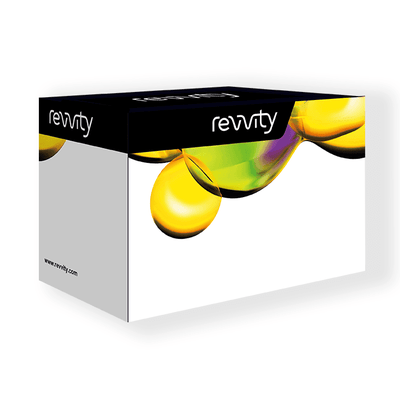
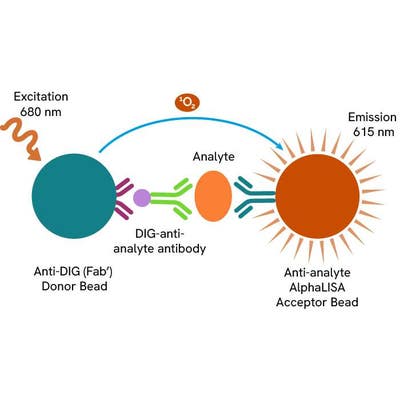
 View All
View All
AlphaLISA Mouse TNF-α Biotin Free Detection Kit, 100 Assay Points
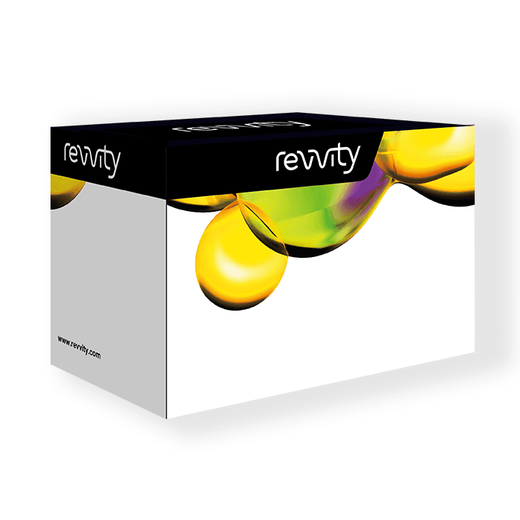
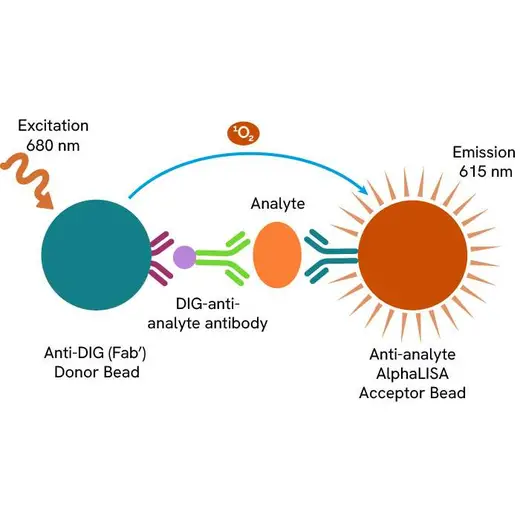



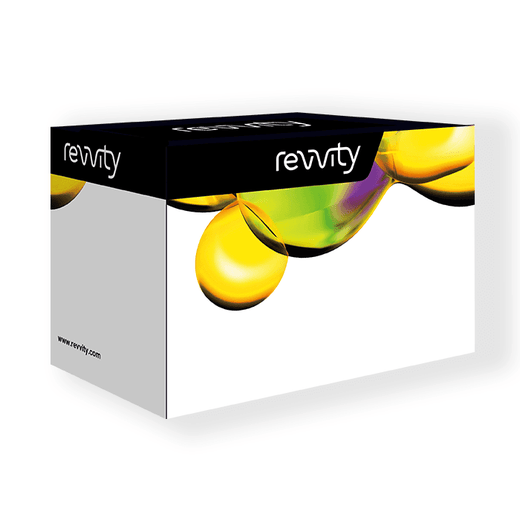
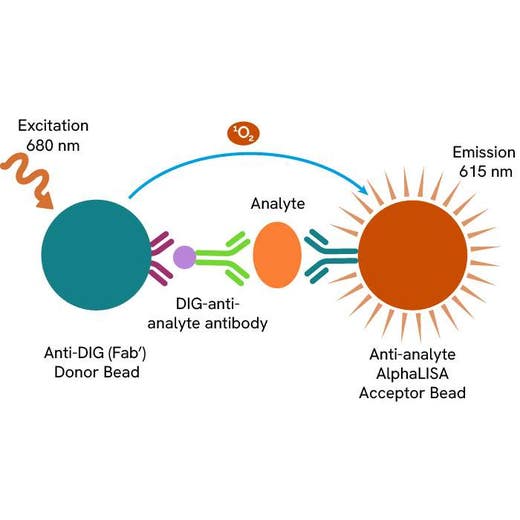



The AlphaLISA Mouse TNFα Biotin-Free Detection Kit is designed for the quantitative detection of mouse TNFα in serum, cell culture medium, and other samples types using a homogeneous (no wash steps, no separation steps) assay. The biotin-free kit uses anti-DIG (anti-Digoxin) Donor beads instead of streptavidin Donor beads, which makes the kit compatible with high-biotin culture media and other sample types that contain high levels biotin (including brain/liver tissue extracts, milk and eggs).
For research use only. Not for use in diagnostic procedures. All products to be used in accordance with applicable laws and regulations including without limitation, consumption and disposal requirements under European REACH regulations (EC 1907/2006).
| Feature | Specification |
|---|---|
| Application | Protein Quantification |
| Dynamic Range | 7 - 70 ng/mL |
| Limit of Detection | 0.007 ng/mL |
| Limit of Quantification | 0.024 ng/mL |
| Sample Volume | 10 µL |
The AlphaLISA Mouse TNFα Biotin-Free Detection Kit is designed for the quantitative detection of mouse TNFα in serum, cell culture medium, and other samples types using a homogeneous (no wash steps, no separation steps) assay. The biotin-free kit uses anti-DIG (anti-Digoxin) Donor beads instead of streptavidin Donor beads, which makes the kit compatible with high-biotin culture media and other sample types that contain high levels biotin (including brain/liver tissue extracts, milk and eggs).
For research use only. Not for use in diagnostic procedures. All products to be used in accordance with applicable laws and regulations including without limitation, consumption and disposal requirements under European REACH regulations (EC 1907/2006).





AlphaLISA Mouse TNF-α Biotin Free Detection Kit, 100 Assay Points





AlphaLISA Mouse TNF-α Biotin Free Detection Kit, 100 Assay Points





Product information
Overview
Formats:
- Our HV (100 assay point) kits allow you to run 100 wells in 96-well format, using a 100 µL reaction volume (10 µL of sample).
- Our 500 assay point kit allows you to run 500 wells in 96-well or 384-well format, using a 50 µL reaction volume (5 µL of sample).
- Our 5,000 assay point kit allows you to run 5,000 wells in 96-well or 384-well format, using a 50 µL reaction volume (5 µL of sample).
Features and Benefits:
- No-wash steps, no separation steps
- Compatible with high biotin samples, including RPMI and high-biotin tissue extracts
- ELISA alternative technology
- Sensitive detection
- Broad sample compatibility
- Results in less than 3 hours
Tumor Necrosis Factor Alpha is a multifunctional proinflammatory cytokine synthesized mainly by nucleated blood cells as a 233 aa type II transmembrane protein which is cleaved by ADAM17 between aa76-77 to form a soluble homotrimeric complex. TNFα plays a role in lipid metabolism, coagulation and endothelial function and has been associated with cancer, infection and inflammation (including inflammatory bowel disease), ischemia/reperfusion injury and heart failure, and insulin resistance. This kit is used when the analyte is in a matrix containing high levels of biotin, such as can be found in cell culture media such as RPMI, or milk.
AlphaLISA technology allows the detection of molecules of interest in a no-wash, highly sensitive, quantitative assay. In an AlphaLISA biotin-free assay, a DIG-labeled anti-analyte antibody binds to the anti-DIG-coated Donor beads while another anti-analyte antibody is conjugated to AlphaLISA Acceptor beads. In the presence of the analyte, the beads come into close proximity. The excitation of the Donor beads causes the release of singlet oxygen molecules that triggers a cascade of energy transfer in the Acceptor beads, resulting in a sharp peak of light emission at 615 nm.
Specifications
| Application |
Protein Quantification
|
|---|---|
| Automation Compatible |
Yes
|
| Brand |
AlphaLISA
|
| Detection Modality |
Alpha
|
| Dynamic Range |
7 - 70 ng/mL
|
| Limit of Detection |
0.007 ng/mL
|
| Limit of Quantification |
0.024 ng/mL
|
| Product Group |
Kit
|
| Sample Volume |
10 µL
|
| Shipping Conditions |
Shipped in Blue Ice
|
| Target |
TNFα
|
| Target Class |
Cytokines
|
| Target Species |
Mouse
|
| Technology |
Alpha
|
| Therapeutic Area |
Inflammation
|
| Unit Size |
100 Assay Points
|
Video gallery

AlphaLISA Mouse TNF-α Biotin Free Detection Kit, 100 Assay Points

AlphaLISA Mouse TNF-α Biotin Free Detection Kit, 100 Assay Points

Resources
Are you looking for resources, click on the resource type to explore further.
AlphaLISA™ technology is a highly sensitive, easy-to-use, and reproducible method for detecting and quantifying molecules in...


How can we help you?
We are here to answer your questions.






























